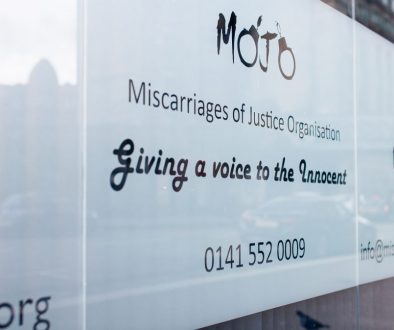CCRC Underfunding
The following article from “The Guardian” online highlights concern at the underfunding of the Criminal Cases Review Commission (CCRC), the body which investigates, and refers to the Court of Appeal, potential miscarriages of justice in England & Wales.
The numbers speak for themselves. Viewed in the light of the chronic and severe underfunding of Legal Aid, it’s not hard to see where government’s priorities lie. Or, more accurately, where they don’t.
Government funding of the Criminal Cases Review Commission, the last hope for people battling miscarriages of justice, has come under attack as the number applications rises steeply.
The new justice minister Edward Argar has defended the long-term decline in the agency’s budget on the grounds that it is “sufficiently funded for the work that it does”.
But the shadow justice secretary, Richard Burgon, has said growing caseloads and falling budgets are having a severe impact on the commission’s work. The Ministry of Justice’s budget has been cut by 40% since 2010, the largest loss of any Whitehall department.
The CCRC, which investigates complaints from people trying to prove they have been wrongly convicted, received £7m from the MoJ in 2003/4 and £6.5m in 2009/10. In 2017/18 its income slipped to £5.6m.
The financial squeeze comes at a time when the number of applications received by the commission has rocketed, from 885 in 2003/4 to 1,439 last year.
It is argued that cuts to legal aid and failures to disclose evidence have tipped the balance against defendants, making miscarriages of justice more likely. The funding issue has been highlighted by the Centre for Criminal Appeals (CCA), which investigates wrongful conviction claims.
In a letter to Argar this summer, the CCA said: “It is implausible that this shortage of resources has not had a negative impact on the quality of the CCRC’s case reviews and – consciously or unconsciously – its decisions about whether to carry out specific instances of investigation in cases.”
Argar wrote back: “In my view, the CCRC is sufficiently funded for the work that it does.”
The chair of the CCRC, Richard Foster, has also raised concern about resources. In a speech marking the commission’s 20th anniversary last year, he said: “We have money – though never quite enough – which allows us to employ people with a considerable range of legal, analytical and professional expertise.”
Since 1997 the CCRC has examined around 20,000 applications and referred more than 630 cases – mainly for convictions of the most serious sort such as murder, rape and terrorist-related offences – back to the appeal courts. Two-thirds of those referrals have resulted in convictions being quashed or sentences changed. High-profile successes have included Sally Clark, who was wrongly convicted of the murder of her two infant sons.
Foster said: “Numbers of application have risen considerably in recent years. Money is tight. For every £10 the commission had to spend per case 10 years ago, we have about £4 today.”
A CCRC spokesman said: “It has always been our position that we will not compromise on the quality of our casework and we have always sought to make savings by improving both the efficiency and the effectiveness of our processes without affecting detrimentally the efficacy of our investigations.
“Decisions about whether or not a particular case requires us to carry out this forensic work or to instruct that expert are always based on the potential evidential value of that work and not on questions of cost.”
Suzanne Gower, the managing director of the Centre for Criminal Appeals, a legal charity, said: “It simply isn’t credible to suggest that the cuts to the CCRC’s budget coupled with the significant increase in workload will not have had a seriously detrimental effect on the quality and scope of CCRC investigations, ultimately leading to innocent people and their families being denied justice.”
An MoJ spokesperson said: “The Criminal Cases Review Commission has the resources to carry out its valuable work effectively.” A government review of its efficiency and governance is due to be published this autumn.
The original article can be read HERE.



